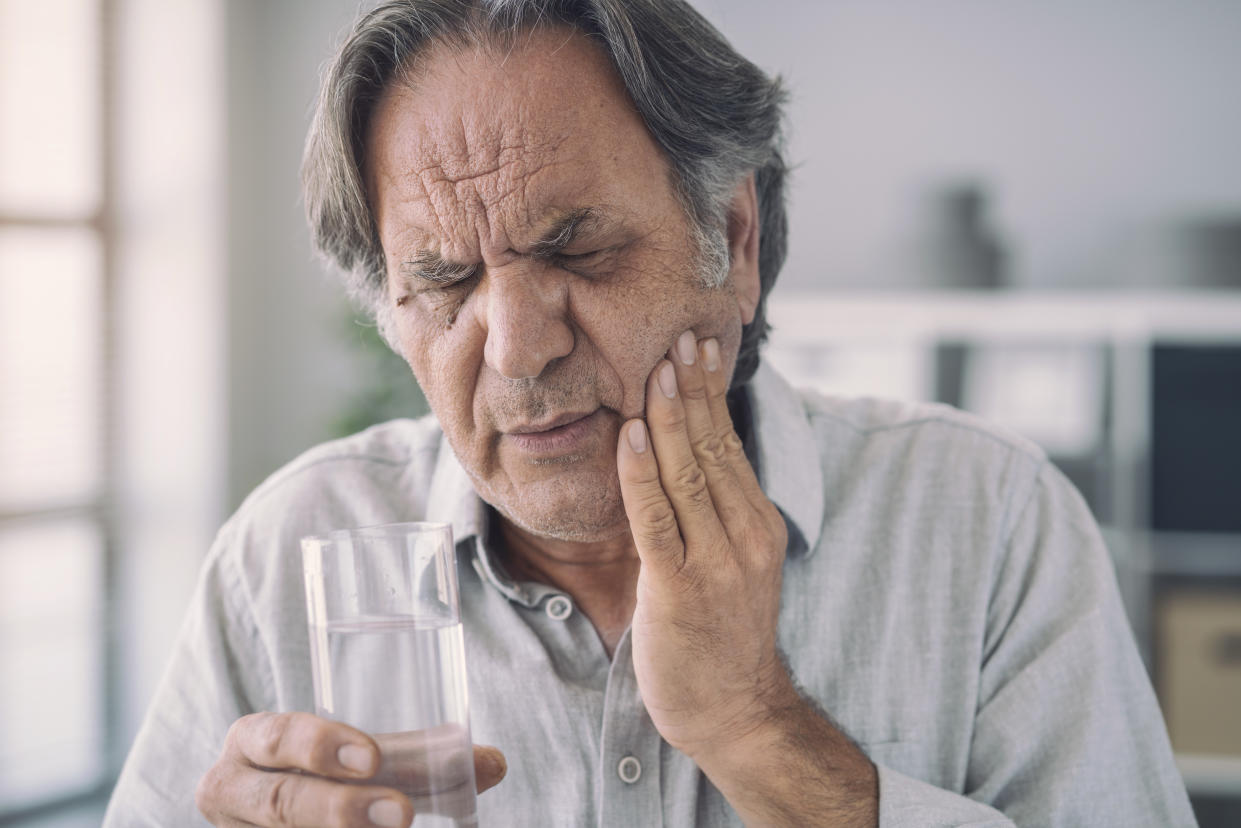Scientists work out why cold makes your teeth hurt (and how to stop it)

New research has thrown light on why some people experience tooth pain when having cold foods or drinks - and could even suggest a way to treat the pain.
The researchers believe that hyper-sensitivity to cold may be a defence mechanism, used by the body to stop further injury to damaged teeth.
The researchers say that a chemical in oil of cloves - used in some toothpastes - may help to minimise pain caused by cold, and could even lead to new drugs.
Experiments on mice allowed the researchers to zero in on a particular protein in odontoblasts, the cells that form dentin, the shell beneath the tooth's enamel.
Read more: Coronavirus: Pandemic leading to tooth-grinding
Jochen Lennerz, medical director of the Center for Integrated Diagnostics at Massachusetts General Hospital (MGH) says, "We found that odontoblasts, which support the shape of the tooth, are also responsible for sensing cold.
"This research contributes a new function to this cell, which is exciting from a basic-science standpoint.
“We now also know how to interfere with this cold-sensing function to inhibit dental pain."
Many of us have experienced intense pain from cold when they have a hole in a tooth from an untreated cavity, for example.
Teeth can also become very sensitive to cold from gum erosion due to aging - and some cancer patients treated with platinum-based chemotherapies have extreme cold sensitivity all over their bodies. says
Lennerz says, "A breeze on the face registers as extreme pain in the teeth, which may even cause some patients to stop therapy.”
Read more: Mysterious “rogue planet” could be even weirder than we thought
The researchers conducted experiments on mice whose molars were drilled under anesthesia, which had been genetically engineered not to have TRCP5, a protein encoded by the TRCP5 gene that is expressed in nerves in many parts of the body.
The researchers found that mice without the gene behaved normally.
Lennerz said, "We now have definitive proof that the temperature sensor TRCP5 transmits cold via the odontoblast and triggers nerves to fire, creating pain and cold hypersensitivity.
"This cold sensitivity may be the body's way to protect a damaged tooth from additional injury."
Read more: Astronomers find closest black hole to Earth
The researchers believe that in response to cold, the TRCP5 protein opens channels in the membrane of odontoblasts, enabling other molecules, such as calcium, to enter and interact with the cell.
If the tooth's pulp is inflamed from a deep cavity, for example, TRCP5 is overabundant, causing increased electrical signaling via the nerves emerging from the root of the tooth and running to the brain, where pain is perceived.
Lennerz says, "Most cells and tissues slow their metabolism in the presence of cold, which is why donor organs are put on ice. But TRPC5 makes cells more active in cold, and the odontoblasts' ability to sense cold via TRPC5 makes this discovery so exciting."
The research team also identified a possible medicine for minimising tooth sensitivity to cold.
For centuries, oil of cloves has been used as a remedy for tooth pain. The active agent in oil of cloves is eugenol, which happens to block TRCP5.
Toothpastes containing eugenol are already on the market, but the findings of this study may lead to more potent applications to treat teeth that are hypersensitive to cold.


